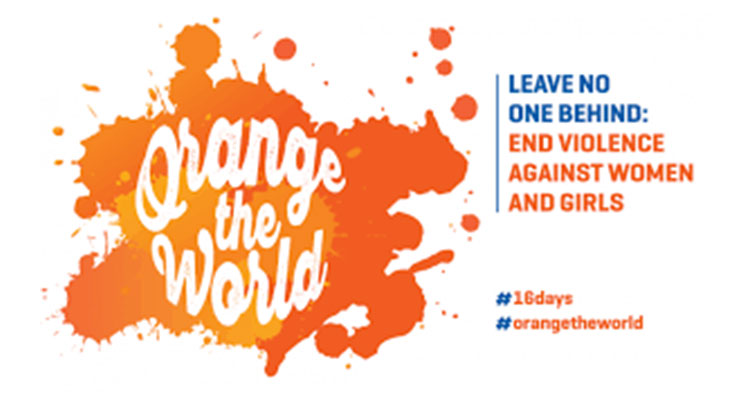“On the occasion of the International Day for the Elimination of Violence against Women, we say once again, violence must stop now.
Violence against women and girls still takes place every day, inside and outside the European Union. This violation of human rights is pervasive and has many different faces: it happens regardless of social background, whether at home, at work, at school, in the street, playing sports or online. It limits women’s and girls’ full participation in all aspects of society – political, cultural, social and economic.
One in three women in Europe has experienced either physical and/or sexual violence. 80% of trafficking victims inside the EU are female. In developing countries, one in every three girls is married before reaching age 18.
Things have however started to change. Over the last 30 years, the incidence of female genital mutilation has decreased by 50% in Africa. In South Asia, the percentage of girls married under the age of 15 has gone down by half. And the recent global #metoo movement, which contributed to drawing attention to the extent of sexual assault and harassment in our societies, has encouraged victims to speak up, and claim and defend their rights.
To eliminate this gender-based violence once and for all, we need to improve education and legislation and change social norms. We have dedicated 2017 to European action to eliminate all forms of violence against women and girls, both in the public and private spheres. Lawyers, doctors, teachers and police, among others, are being trained to support victims and to prevent gender-based violence, thanks to EU financial support to NGOs.
Taking action beyond our borders, we launched with the United Nations the Spotlight Initiative, with an unprecedented initial investment of €500 million. The Initiative addresses on a global scale the root causes of violence against women and girls, helps victims and empowers them to contribute to more secure, more resilient, richer and freer societies.
Eliminating violence against women and girls is a first step towards global peace and security and is at the heart of the 2030 Agenda for Sustainable Development. It is a precondition for the promotion, protection and fulfilment of human rights, gender equality, democracy, and economic growth.
The European Union will continue to work tirelessly through all instruments at its disposal to eliminate violence against women and girls, making it a thing of the past.”
Background
Violence against Women and Girls is one of the most widespread and devastating human rights violations across the globe. It is estimated that 35% of women have experienced violence at some point in their lives. This figure is as high as 70% in some countries. This scourge is a barrier to gender equality, women’s and girls’ empowerment and overall sustainable development, and an impediment to the achievement of the Sustainable Development Goals. Global and continuous engagement is therefore required in all countries and regions to overcome it.
The Commission proposed the accession of the European Union to the Council of Europe’s Istanbul Convention. Work towards its ratification is ongoing. The Commission calls upon those EU Member States who have not yet ratified the Convention to follow the path.
Last year, the Commission launched the NON.NO.NEIN campaign – Say NO! Stop violence against women. Its aim was both to raise awareness on this issue and to fund concrete projects to reduce the risk of violence taking place and support women who have been affected. The European Commission provided 15 million euros in funding for Member States, local governments, relevant professionals and civil society organisations across Europe to intensify their actions and campaigns to combat violence against women.
In June 2017, the European Commission took over the leadership of the ‘Call to Action Search for available translations of the preceding link••• on Protection from Gender-Based Violence in Emergencies’. In humanitarian crises, gender-based violence is often widespread. We are committed to support survivors and eradicate such violence. The call to action brings together more than 60 humanitarian organisations with one mission: that gender-based violence is recognised as life-threatening and addressed from the earliest onset of a crisis. Women and girls at risk of violence need our most immediate attention. We are determined to use our leadership to draw attention to this issue and translate our efforts into concrete action in the field.
The Spotlight initiative, launched together with the United Nations during the 72nd UN General Assembly in September, responds to all forms of violence against women and girls. It focusses on domestic and family violence, sexual and gender-based violence and harmful practices, femicide, trafficking in human being and sexual and economic exploitation. The initiative will run between 2017 and 2023 and has an initial investment of € 500 million, with the EU as main contributor (see video).



